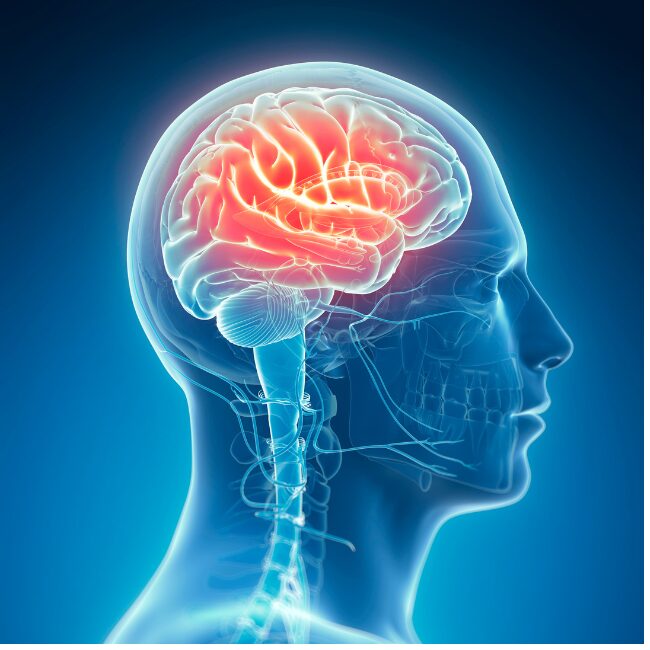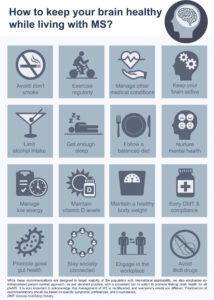
Experts and people with MS have come together to identify key lifestyle choices that significantly impact MS brain health.
A brand-new expert consensus on lifestyle choices to support brain health in MS has been published this month. The paper begins with the statement, “Brain health is a global priority for multiple sclerosis (MS) care,” and emphasises that a combination of lifestyle choices and medication is vital for optimising brain health in people living with MS. The authors also stress the importance of input from a wide range of healthcare professionals in supporting effective brain health.
This consensus was developed collaboratively by 69 healthcare professionals and individuals living with MS. Together, they identified 16 key lifestyle choices that significantly impact MS brain health.
It’s heartening to see how closely these recommendations align with the Overcoming MS Program. Many of the key points mirror the pillars of our approach:
One area the Overcoming Program doesn’t yet cover fully is advice on avoiding illicit drugs and limiting alcohol. However , this is something we plan to address soon in our resources.

Brain health framework forplwMS. Wills et al 2004
The consensus paper also outlines 14 recommendations to support people with MS to make lifestyle adjustments that last long-term.
At Overcoming MS, we’re passionate about this topic, which is why our Program includes a pillar called ‘Change your life, for life’. Recent livestreams, such as “Behavioural Change: A Roadmap to Good Health” and “Revisiting Your Health Goals” with Facilitator Laura Crowder, along with downloadable tools and plans, offer practical support for those preparing for change. Meanwhile, our Circles and peer groups are tailored to help people take action and sustain those changes.
This new expert consensus marks an exciting step forward in making lifestyle a core part of managing MS. It reinforces the advice we share, underscores the importance of supporting lifestyle and behavioural changes, and helps us identify areas for growth. As a charity, this insight is invaluable in shaping how we can better support everyone living with MS.
You can find the full paper here, along with downloadable images —perfect for sharing with your healthcare team.
Wills O, Brischetto D, Zoszak K, Allogmanny S, McMahon AT, Haartsen J, Probst Y. Establishing consensus on lifestyle recommendations and behavior change strategies to promote brain health-focused care for multiple sclerosis: A modified e-Delphi study. Mult Scler Relat Disord. 2024 Oct 22;92:105949. doi: 10.1016/j.msard.2024.105949. Epub ahead of print. PMID: 39488012.